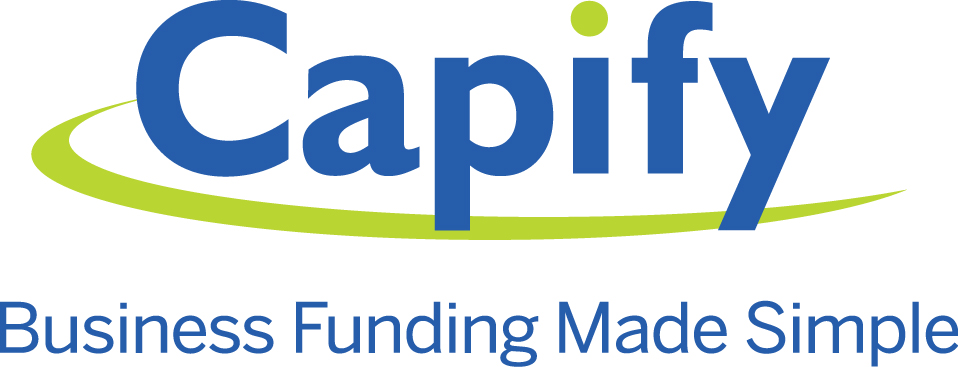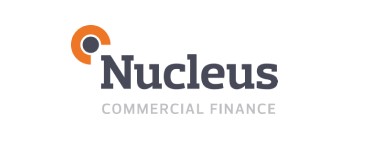Is your business a good candidate for a merchant cash advance?
By Tim Adler on Small Business UK - Advice and Ideas for UK Small Businesses and SMEs Merchant cash advances are the fastest-growing area of business funding, enabling businesses to raise working capital against till sales. It’s a new way of funding driven by technology The post Is your business a good candidate for a merchant cash advance? appeared first on Small Business UK.

By Tim Adler on Small Business UK - Advice and Ideas for UK Small Businesses and SMEs

What is a merchant cash advance?
A merchant cash advance, or MCA, is short-term funding for businesses which accept debit and credit card payments. Merchant cash advance lenders provide businesses with an upfront sum of money and the advance is paid as a percentage of their ongoing future credit card sales. Your business repays the MCA using a percentage of its card transaction sales, plus fees.
One attraction is that you don’t need to offer up assets for security, such as property or inventory, to access funding.
How much can I borrow?
Broadly speaking, you could borrow up to 150 per cent of your monthly card sales. A lender wants to see that you have been trading for a minimum of three months and have a card transaction turnover of at least £10,000 per month.
Typically, lenders will advance from £2,500 to £300,000 conditionally linked to turnover.
Fast business funding and loans – Worried about cash flow for your small business? Need cash fast? Find out more about fast business funding and who the key providers are
How does a merchant cash advance work?
First, once you have decided how much you want to borrow, you and the lender agree the percentage repayment corridor of debit/credit card sales.
Typically, you should expect a range of between 10 per cent and 18 per cent of each sale to repay when you make a sale.
Unlike other forms of traditional business lending where a company repays a set amount each month to repay a loan, the MCA is paid off as and when you make sales.
So, if your business has a slow month on sales due to seasonality or just general poor sales, you are only expected to pay back in line with the corridor on those sales. A conventional loan would expect fixed repayments regardless.
Pro tip: One difference between an MCA and a traditional business loan is that there is no benefit to early repayment. The total repayment amount has already been agreed.
The amount you borrow is deducted daily, weekly or monthly as a percentage of your company’s sales, plus interest, until the amount is repaid in full. The higher the number of debit or credit card purchases, the quicker the advance can be repaid.
How long does a merchant cash advance last?
Repayment timescales for MCAs typically range from three to 18 months.
What you can use the money for
- Renovation and refurbishment
- Purchasing stock
- Working capital
- Marketing and advertising
- Business expansion
Borrowing money to pay for stock: inventory finance, credit cards, loans and more – We explore the options that are available to help you cover the costs of your stock as well as the pros and cons
What kinds of businesses is it best for?
Cash advances are best suited to small businesses looking for a cash injection within 24 hours. Lenders may require you to have been trading for a minimum of three months and have a card transaction turnover of at least £10,000 per month.
Any business that accepts credit card payments is suitable; however, it is best suited to businesses that make heavy use of card machines, such as retail, hospitality or tradesmen, if they carry a handheld machine.
How long does it take to apply for a merchant cash advance?
Once you have submitted an online form and three months of merchant statements, draw down of funds can take on average 2-3 days.
Who are the merchant cash advance companies in the UK?
Here are some of the popular merchant cash advance companies in the UK:
- 365 Business Finance
- Amazon
- Capify
- eBay
- JustEat
- Liberis
- Momenta Finance
- Merchant Loan Advance
- Nucleus Commercial Finance
- PayPal

365 Business Finance
Cash advance amount: £10,000 to £400,000
Collection rate: 5-16%
Term: There’s no fixed term
Speed of decision: Under 24 hours (and funding can be under 48 hours)
365 Business Finance offers merchant cash advances to small businesses that have been trading longer than six months and says it has a 90 per cent approval rate. Repayments are taken as a small percentage of credit and debit card sales and stop automatically when the loan has been fully repaid. However, if your monthly card sales don’t currently exceed £10,000, you’ll need to speak to a representative before being approved.

Amazon
Cash Advance Amount: £500 to £2m
Collection rate: 5-20%
Term: 6 to 9 months
Speed of decision: 24 hours
Amazon launched its merchant cash advance offer in July 2023, aimed at the 100,000 UK small businesses that sell through the platform. The actual money is lent by YouLend, which also has branded offers through eBay, Just Eat, Shopify and others. Amazon says it has a 90 per cent acceptance rate. Only businesses that have a minimum of three months’ trading history can apply.

Capify
Cash advance amount: £5,000 to £500,000
Collection rate: circa 15%
Average repayment term: 9 months
Speed of decision: same-day approval and funding within 24 hours
SME Lender of the Year at the 2023 Credit Awards, Capify has helped thousands of businesses realise their growth ambitions over the past 15 years. You must have at least one year of trading history to qualify for a Capify merchant cash advance and take at least £20,000 in monthly card payments.

eBay
Cash Advance Amount: £500 to £1m
Collection rate: 5-20%
Term: 6 to 9 months
Speed of decision: 24 hours
The actual money is lent by YouLend, which also has branded offers through Amazon, Just Eat, Shopify and others. eBay says it has a 90 per cent acceptance rate.

Just Eat
Cash advance amount: £500 to £1m
Collection rate: 5-20%
Term: 6 to 9 months
Speed of decision: 24 hours
The actual money is lent by YouLend, which also has branded offers through Amazon, eBay, Shopify and others. Just Eat says it has a 90 per cent acceptance rate.

Liberis
Cash advance amount: £1,000 to £1m
Collection rate: 15-20%
Average repayment term: 12-18 months
Speed of decision: within 24 hours
Liberis has arranged £1bn worth of finance for 26,000 businesses. Founded in 2007, Liberis also offers a white-label service to brands including Barclaycard, Global Payments, Tide and WorldPay. If a borrower wants to renew, they are usually referred straight to Liberis.

Momenta Finance
Cash advance amount: £10,000 to £150,000
Collection rate: 10-15%
Term: flexible and top-ups available after 4 months
Speed of decision: funds received within 24 hours
Applicants must have a minimum six months of trading history and take a minimum of £10,000 a month through card terminals. Business cash advance loans are calculated at 120 per cent of monthly card takings up to a maximum of £150,000. They have supported more than 2,000 SMEs with £150m worth of lending.

Merchant Loan Advance
Cash advance amount: £3,000 to £300,000
Collection rate: 10-25%
Term: 4-18 months
Speed of decision: “On average 5 days after your application”, but it can as quick as 24 hours.
Merchant Loan Advance is FCA and ICO registered and was established in 2014, It has lent over £7 million to SMEs to date at an average amount of £16,000 per advance. Typically, the company works with businesses that have been trading for a minimum of three months and are turning over £3,000 in monthly card takings, but they will try to find solutions if you are a start-up or the company does not meet these requirements.

Nucleus Commercial Finance
Cash advance amount: £3,000 to £300,000
Collection rate: n/a
Term: 3-12 months
Speed of decision: same day
Nucleus Commercial Finance, which has lent over £2.8bn to SMEs to date, offers up to 200 per cent of monthly card transactions. You must have been trading for a minimum of four months though with at least one director based in the UK, with a minimum of £4,200 in monthly card takings and 10-plus card transactions a month. Other caveats include your having to be a homeowner for security if you want to borrow more than £75,000, and businesses registered in Scotland only being able to borrow up to £40,000 — not £150,00 as in England and Wales.

PayPal Working Capital
Cash advance amount: £1,000 up to £125,000 for first time applicants; up to £185,000 for subsequent applicants
Collection rate: 10-30%
Term: variable
Speed of decision: PayPal will usually let you know if you’re approved straight away. If approved and you accept, your funding will be transferred to your PayPal account within minutes
PayPal launched its PayPal Working Capital product back in 2014. As of January 2022, over 52,000 businesses have secured £1.9bn in funding with PayPal Working Capital. Depending on eligibility, you could receive business funding equivalent to up to 35 per cent of your annual PayPal sales, up to a maximum of £185,000. To be eligible to apply you must have held a UK PayPal business account for at least three months before applying, and process at least £9,000 a year in PayPal sales annually. When it comes to repayment, your business needs to meet the minimum repayment threshold every 90 days, plus the fixed fee which you know upfront.
“Accessibility and flexibility has a lot of appeal to business owners who are stretched in so many directions to keep their businesses up and running,” PayPal told Small Business.
More on business funding
Best small business loans in the UK – We explore whether a loan is the right finance option for you along with some of the best small business loans in the UK market
What is a working capital loan for your business? – An explainer on this sort of finance that is designed to cover short-term operational needs
The post Is your business a good candidate for a merchant cash advance? appeared first on Small Business UK.






















